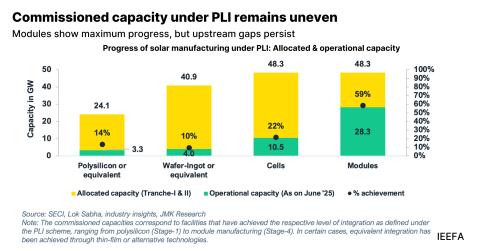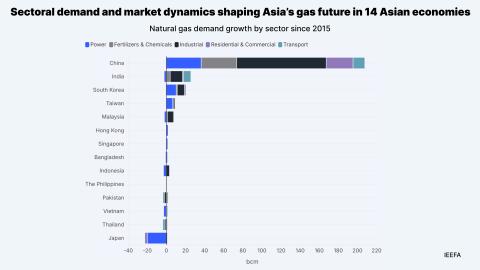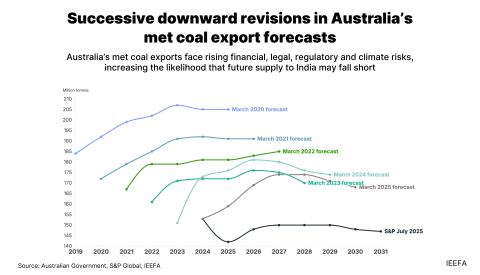IEEFA Australia: Building new coal mines makes no sense in 2019
SYDNEY, March 14, 2019 – IEEFA objects to Whitehaven Coal’s current application to open a new thermal coal mine north of Gunnedah in New South Wales, Australia.
Currently being reviewed by the New South Wales Independent Planning Commission, the application is to expand Whitehaven Coal’s already approved Vickery Coal Project proposal located on an old mine site that ceased production in 1998.
Tim Buckley, Director of Energy Finance Studies with the Institute for Energy Economics and Financial Analysis (IEEFA) firmly objects to the company’s application.
“Building a huge new thermal coal mine simply makes no sense for Australia in 2019,” says Mr Buckley.
“This application shows the outdated coal industry is being left behind as cheaper renewable energies increasingly become part of the mix and lenders shift away from coal, particularly more expensive imported coal.”
Over 100 globally significant financial institutions including public and private banks, credit agencies and insurance groups have restricted coal financing including 40% of the top 40 global banks and 20 globally significant insurers. The majority of the institution’s announcements are ‘climate’ policies reflecting an acceptance of climate science and a serious reorientation of business strategies.
Since the start of 2018 there have been 34 new or significantly improved announcements from global financial institutions restricting coal.
“While renewable energies are increasingly cheaper, global coal trade has peaked and Australia needs to avoid flooding the declining market profile over the coming decade with unnecessary new supply,” says Mr Buckley.
“This week, the Reserve Bank of Australia’s Deputy Governor stated climate change will be an ‘abrupt and disorderly’ blow to Australia’s financial stability.
“Guy Debelle called for an orderly transition to a low carbon economy, which obviously doesn’t include opening up new high emission coal mines like the one Whitehaven is hoping to have approved.
“The financial, environmental and moral cost of building a new thermal coal mine in the face of climate science accepted by more than 100 global financial institutions, plus the Reserve Bank of Australia, the Australian Prudential Regulation Authority and the Australian Securities and Investments Commission outweighs any perceived benefit of putting more expensive dirty coal into Australia’s energy export mix.
“This application coincides with a time of significant climate related policy announcements from Japan – Australia’s top export destination for thermal coal.
“This month alone we have seen thermal coal exit moves by Sojitz Corporation and Marubeni Corporation, building on a series of announcements over the last six months.”
In limiting climate change to 1.5-2°C of warming as per the global Paris commitments, IEEFA notes fossil fuel extraction must rapidly decrease towards zero net emissions, effective almost immediately. All countries must instead accelerate reliance on sustainable, affordable and renewable non-fossil sources of energy, and accelerate energy efficiency and electrification of the transport sector as the top priorities to avoid catastrophic climate change.
“The first step in this planned transition is to stop new thermal coal mine approvals. When in a hole, the first thing to do is stop digging deeper!” says Mr Buckley.
“To maximise the value of Australia’s existing coal industry and buy time for a planned transition, we need to stop new greenfield developments.
“Whitehaven’s Vickery Extension Project must be rejected by the NSW Independent Planning Commission,” he said.
Read IEEFA’s submission to the NSW Government, Department of Planning and Environment
Media contact: Kate Finlayson ([email protected]) +61 418 254 237
Author contact: Tim Buckley ([email protected])
About IEEFA: The Institute for Energy Economics and Financial Analysis (IEEFA) conducts research and analyses on financial and economic issues related to energy and the environment. The Institute’s mission is to accelerate the transition to a diverse, sustainable and profitable energy economy.











